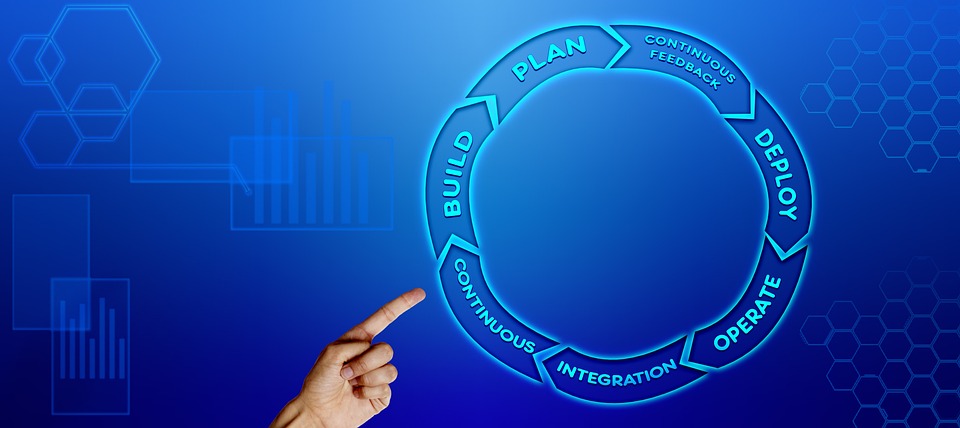Introduction
In recent years, the software development landscape has undergone significant transformation driven by agile methodologies, cloud computing, and an increasing demand for rapid delivery of high-quality software. At the forefront of this evolution is DevOps, a cultural and technical movement that bridges the gap between software development (Dev) and IT operations (Ops). As we navigate through 2023, it’s essential to understand how DevOps has evolved and its impact on the software development lifecycle.
The Foundations of DevOps
DevOps emerged in the late 2000s as a response to the challenges of software development silos. Traditionally, the development and operations teams operated independently, resulting in inefficiencies, communication barriers, and prolonged release cycles. DevOps introduced a set of practices that foster collaboration, automation, and continuous integration/continuous deployment (CI/CD), ultimately leading to enhanced productivity and faster delivery times.
Key Components
- Culture of Collaboration: Emphasizing shared responsibilities and ownership of software throughout its lifecycle.
- Automation: Utilizing tools to automate testing, deployment, and monitoring to streamline processes.
- Continuous Feedback: Engaging in continuous testing and feedback loops to ensure quality and performance.
- Microservices Architecture: Breaking down applications into smaller, manageable services that can be developed and deployed independently.
The Current Landscape: 2023 Trends
As we move further into 2023, several key trends are shaping the evolution of DevOps:
1. AI and Machine Learning Integration
The incorporation of artificial intelligence (AI) and machine learning (ML) in DevOps is revolutionizing the way teams operate. AI-driven tools analyze code patterns and deployment metrics, predicting potential issues before they arise. This proactive approach to software management enhances reliability and speeds up decision-making processes.
2. Security as Code
With the increasing prevalence of cyber threats, integrating security into the DevOps pipeline—often referred to as "DevSecOps"—is no longer optional. Security checks and compliance controls are now built into the CI/CD process, ensuring that security measures are a fundamental part of development rather than an afterthought.
3. GitOps and Infrastructure as Code
GitOps, a methodology that leverages Git repositories as the single source of truth for declarative infrastructure and applications, is gaining traction. By treating infrastructure changes like application code, teams can achieve version control and automate deployment processes, improving consistency and reducing risks associated with manual configurations.
4. Observability over Monitoring
As systems become increasingly complex, traditional monitoring methods are proving inadequate. In 2023, the focus is shifting towards observability—providing deeper insights into system performance and user experience. Observability tools allow teams to analyze real-time data and identify bottlenecks or failures before they impact users.
5. Remote and Distributed Teams
The rise of remote work has fundamentally changed how teams collaborate. In 2023, DevOps practices are adapting to support distributed teams more effectively, utilizing tools that enhance communication, project management, and collaborative coding. This shift is creating more diverse teams that can draw from a global talent pool.
Challenges in the Evolving DevOps Landscape
Despite the advancements, challenges remain in the DevOps sphere:
- Resistance to Change: Organizational inertia can hinder the adoption of DevOps practices. Teams may be reluctant to change established methodologies.
- Skill Gaps: The rapid pace of technological development requires continuous learning and upskilling, which can be a barrier for some organizations.
- Tool Overload: The expanding ecosystem of DevOps tools can lead to confusion and inefficiency if not strategically managed.
Conclusion
The evolution of DevOps is not just a trend; it’s a fundamental shift in how organizations approach software development and IT operations. In 2023, embracing advancements in AI, security, GitOps, observability, and team collaboration is essential for organizations aiming to thrive in a competitive landscape. As this culture continues to evolve, it will undoubtedly pave the way for more efficient, innovative, and resilient software development practices for years to come.
By fostering a culture of collaboration and continuous improvement, organizations can unlock the full potential of their teams, delivering superior products while staying responsive to the ever-changing needs of the market. The future of software development is bright, and DevOps is leading the charge.


